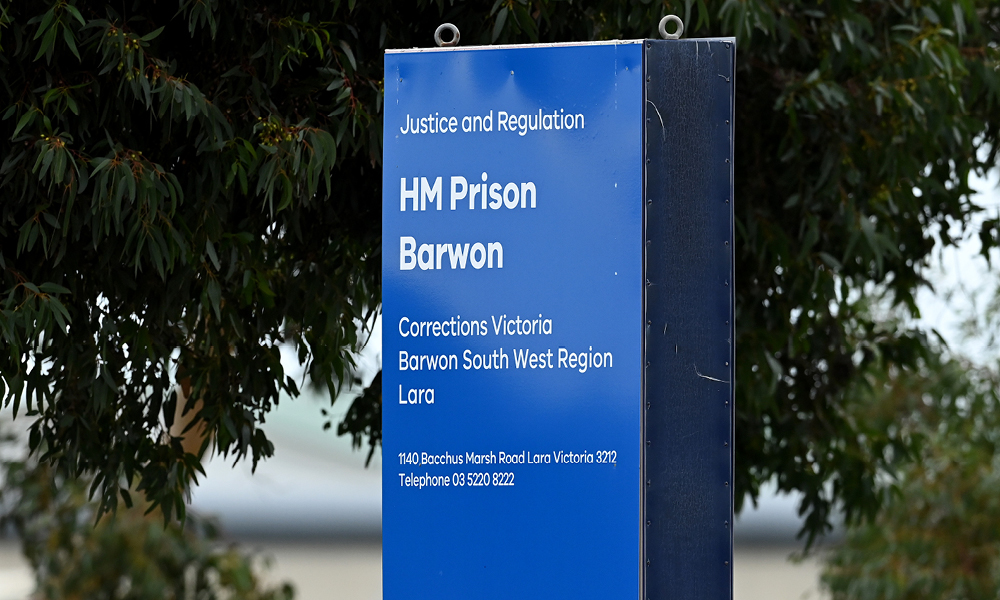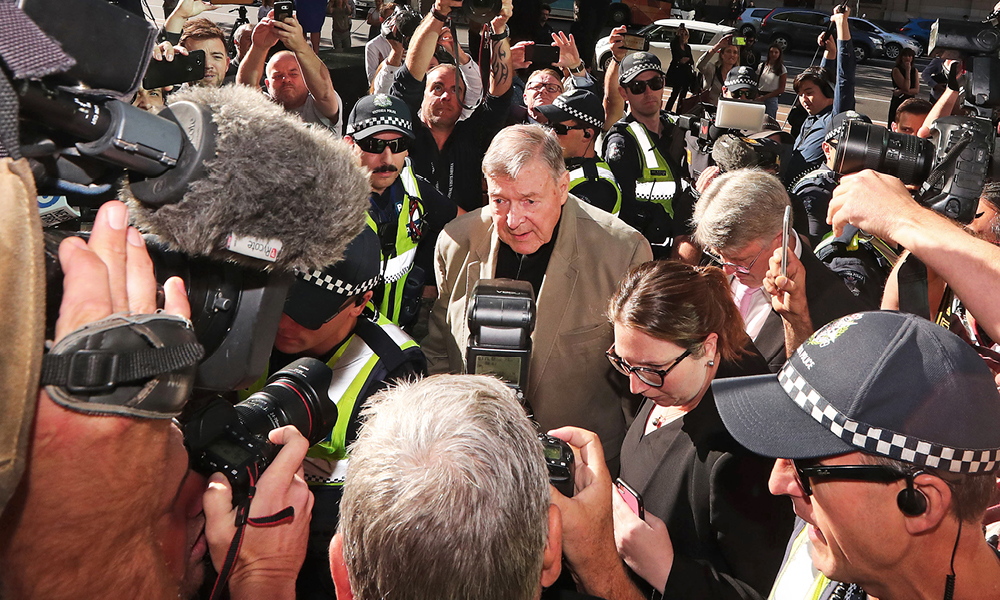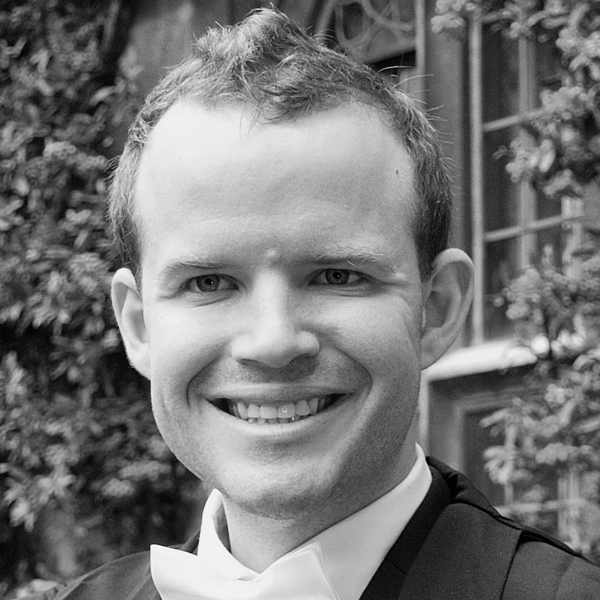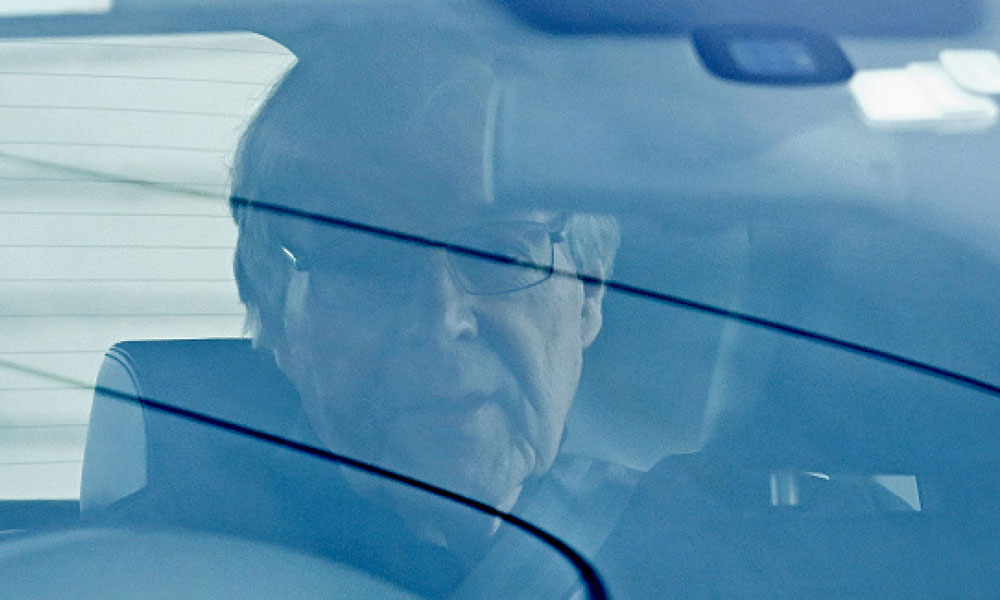A unanimous High Court in Pell v The Queen (Pell) overturned the decision of the Victorian Court of Appeal to uphold the verdict of a jury that Cardinal George Pell had committed five child sex offences.
That was because there was “a significant possibility that an innocent person has been convicted because the evidence did not establish guilt to the requisite standard of proof”1
Though the High Court held that the complaint’s evidence contained no discrepancies or inadequacies, and did not require corroboration, evidence from other witnesses indicated that Cardinal Pell would not have had a reasonable opportunity to have committed the offences. That means that a reasonable jury must have entertained a reasonable doubt as to Cardinal Pell’s guilt.
Commentators have criticised the decision on the usual grounds – that it failed to give sufficient weight to the complainant’s testimony, or it did not respect the function of juries in our adversarial system of justice, and that it is difficult to understand how the High Court could find that a jury must have had a reasonable doubt when the Court of Appeal agreed with the jury.
Some grounds are fallacious.2 Others, meritorious. I will leave these debates to others. I enquire into a more urgent matter on which there was no reasoned decision – whether special leave to appeal should have been granted at all.
The High Court has jurisdiction to entertain appeals from state courts. That jurisdiction is regulated by Parliament.3 The main constraint is that the High Court must give special leave to appeal before it can entertain an appeal. And in deciding whether to grant special leave, it must have regard to whether:
- the application involves a question of law that is of public importance or on which there has been disagreement between and within state courts; and
- the interests of the administration of justice require consideration by the High Court of the appealed decision.4
The reason for these limits on the appellate jurisdiction of the High Court is that we live within a world of scarce resources in which individual justice is not an absolute value. It competes with other values, such as public education, healthcare, environmental protection, law enforcement, and all other things that contribute to our lives and are within the domain of the State.

(Photo by Quinn Rooney/Getty Images)
However, even if individual justice was prior to all other values, when public resources are scarce, allocating disproportionate resources to ensure justice in one case takes away resources for the adjudication of all other cases. This delays and reduces the quality of justice across the system.
So, even in a society in which justice was all that mattered, one could not escape that sacrifices must be made in achieving individual justice in each case to ensure a fair distribution of justice. That means the State must allocate only those resources proportionate to making a decision well-founded in fact and law in the circumstances of each case.
This balance has been struck in Australia through providing an accused with an entitlement to appeal from the decision of a trial judge or jury to the court of appeal in each state or territory. That is because there is a diminishing marginal return on each appeal. In most cases the judge and jury will arrive at the right decision. If they get it wrong, the Court of Appeal in most cases will get it right.
It is possible that we could provide further entitlements to appeal to ever-higher courts. This might improve the probability of arriving at a correct decision by an additional marginal increment with each appeal. But if our resources are scarce, and we allocate no more to our justice system, additional appellate courts will take resources from more efficient lower courts, which delays justice and increases the likelihood that errors will be made in under-resourced lower courts, self-defeatingly increasing the need for appeals.
However, even if we had unlimited resources for our justice system, the State could never be certain, no matter the number of appeals, that a correct decision had been reached. And, the mere fact that an appellate court is constituted by more experienced judges does not mean there is no risk that it will reverse a correct decision, especially when the ground of appeal relates to questions of fact or certain areas of law (that is, evidence) with which lower courts will often have more experience.
For this reason, in Smith Kline, the High Court held that: “[T]he Court, in exercising its jurisdiction to grant or refuse special leave to appeal, gives greater emphasis to its public role in the evolution of the law than to the private rights or interests of the parties to the litigation.”5 That means that when the High Court must decide whether it should grant special leave, it is not sufficient that an injustice has been done to the appellant. There must also be some public interest to justify granting special leave. That will include when the case presents an opportunity for the High Court to develop or clarify an important principle, or when it would be in the interests of the broader administration of justice.6
The High Court in Pell did not articulate the reason it thought special leave to appeal should have been granted. But it allowed the appeal on two grounds – first, that the Court of Appeal examined each piece of evidence to determine whether it was inconsistent with A’s [the complainant’s] account, and whether it remained realistically possible it was true.7
This is an error of principle because it concerns the manner in which the Court of Appeal reasoned in drawing inferences from the evidence about the truth of A’s account. However, there is reason to doubt that the High Court was right in allowing this ground of appeal. The Court of Appeal had held that “nothing in the…evidence…leads us to the conclusion that the jury must have had a doubt…in isolation or the context of the other evidence. Taking the evidence as a whole, it was open to the jury to be satisfied of Cardinal Pell’s guilt beyond reasonable doubt.”(emphasis added)8
If this is taken seriously, it is hard to see how it could be said that the Court of Appeal reasoned in a piecemeal manner. But even if the High Court’s criticism was justified, there would still need to be some public interest to justify granting special leave to appeal. Its decision did not develop or clarify the law. It just restated existing law.9
That might have been in the public interest if there was widespread belief, or the Court of Appeal had stated, that evidence should be assessed on a piecemeal basis. But there is no such belief, and the Court of Appeal did not make that statement. Given that no court, including the Victorian Court of Appeal, has held that evidence should be assessed in a piecemeal way, this was not a reason to grant special leave.
Second, the Court of Appeal erred in holding that it was reasonably open to the jury to conclude that it had no reasonable doubt that Cardinal Pell had committed the alleged offences. The Court of Appeal had held that, though there was limited opportunity for Cardinal Pell to have abused A, there was a narrow interval of time in which those offences could have occurred, and that because the evidence of A was compelling, it was open to the jury to be satisfied that Cardinal Pell was guilty.
The High Court held that though it was possible Cardinal Pell had committed the offences, the evidence as to his positioning after the service, being accompanied by his Master of Ceremonies, and the foot traffic near the sacristy, meant no reasonable jury could have had no reasonable doubt that he was guilty. This is not a matter of principle. It is a matter of what inferences should have been drawn by the jury on the available evidence. This alone cannot be a reason to grant special leave to appeal.
So, if there was no matter of important principle, was granting special leave to appeal in the interests of the administration of justice? It might be thought that preventing the imprisonment of an innocent person is in the interests of the administration of justice.
If the mere fact there was a reasonable argument that Cardinal Pell should not have been convicted was sufficient to grant special leave, it means that in all criminal cases in which that low threshold could be met the High Court should grant special leave to appeal
That would be true if it was known Cardinal Pell was innocent.
But that was not the High Court’s decision. It held that, on the evidence, the jury must have entertained some doubt as to whether Cardinal Pell had committed the alleged crimes. Perhaps, then, it should be sufficient to grant special leave to appeal that Cardinal Pell should not have been convicted. That cannot be right. As the High Court held in Warner v The Queen:
“This Court is not a court of criminal appeal. Applications for special leave in criminal cases where the ground relied on is in substance that the verdict is unsafe or unsatisfactory are not likely to succeed. This Court cannot and should not wish to undertake a general supervisory role of courts of criminal appeal on questions of fact.”10
If the mere fact there was a reasonable argument that Cardinal Pell should not have been convicted was sufficient to grant special leave, it means that in all criminal cases in which that low threshold could be met the High Court should grant special leave to appeal.
That is not the law. It intrudes on the general supervisory jurisdiction of state and territory courts of criminal appeal. And it limits the resources available for the High Court to discharge its public function in cases with a legitimate public interest.
It might then be thought that it was so clear that Cardinal Pell should not have been convicted that, if the conviction were allowed to stand, the decision would undermine public confidence in the courts. That might be true in rare cases. However, there is little evidence the Court of Appeal’s decision to uphold the jury’s verdict had seriously undermined public confidence in the Australian judiciary.
Perhaps this is all too quick. After all, the High Court’s discretion to grant special leave is broad and not confined to those matters which are specified in s35A Judiciary Act 1903. Stepping back, this was a high-profile trial in which Australia’s highest-ranking religious official had been charged with serious child sex offences involving the abuse of a position of power. Is not his conviction of such public importance that there was a public interest in the High Court entertaining the appeal? No. That which is interesting to the public is not always in the public interest. As held in DPP v Smith:
“The public interest is a term embracing matters, among others, of standards of human conduct and the functioning of government and government instrumentalities tacitly accepted and acknowledged to be for the good order of society and the wellbeing of its members. The interest of the public is therefore distinct from the interest of an individual or individuals.”11

(Photo by Michael Dodge/Getty Images)
Cardinal Pell’s trial did not relate to standards of human conduct or the functioning of government. It had no bearing on the good ordering of society or the general well-being of its members. That a matter attracts media attention or relates to an accused occupying a public office is never a sufficient reason to grant special leave to appeal. If it were otherwise, we would have two tiers of justice: one for those appellants who occupy a public office, another for those of lesser stations. That is inconsistent with the rule of law as it makes access to justice before superior courts depend on irrelevant antecedents.
Compare Liberato.12 The South Australian Court of Appeal dismissed an appeal of four men convicted of rape, even though the judge misdirected the jury, because there was no miscarriage of justice. The appellants appealed on the ground that the Court of Appeal failed to take a view of the evidence as a whole and the effect of the misdirection on the jury. The High Court refused special leave to appeal because it raised no matter of general importance which, if wrongly decided, would seriously interfere with the administration of justice. There is no difference in principle between Liberato and Pell.
No justice system is perfect. People are wrongly convicted. Tragically, some are innocent. Others are not. Usually, as with Cardinal Pell, we don’t know. But, with scarce resources, we must do the best we can with what we have. Rights to appeal must end somewhere. Where they end must depend on principle. In Australia, as in many other common law jurisdictions, such as England, rights to appeal to the highest court are conditioned on there being a public interest in the hearing the appeal. That cannot, and does not, mean that public figures should receive a different quality of justice.
Perhaps Cardinal Pell is innocent. If so, that the High Court granted special leave to appeal is a good thing. An innocent man was saved from wrongful conviction. That does not mean it was the right thing to do. Hard cases really do make bad law.
Christopher Stackpoole is a Clarendon Scholar reading for a Master of Philosophy in Law at the University of Oxford. The views that he expresses are his own.
Footnote:
1 Pell v The Queen [2020] HCA 12, [9].
2 Ben Matthews and Mark Thomas write that Cardinal Pell succeeded in his appeal to the High Court of Australia on a ‘legal technicality’: Ben Matthews and Mark Thomas, ‘How George Pell Won in the High Court on a Legal Technicality’ (The Conversation, 7 April 2020), accessed 13 April 2019. This claim is disappointing and undermines public confidence in our legal institutions without justification. To overturn a decision on the ground that a reasonable jury must have entertained doubt as to the guilt of Cardinal Pell is not a legal technicality.
3 Constitution, s73(ii).
4 Judiciary Act 1903 (Cth), s35A.
5 Smith Kline & French Laboratories (Aust) Ltd v Commonwealth (1991) 173 CLR 194, 217-281.
6 Morris v The Queen (1987) 163 CLR 454, 475.
7 Pell v The Queen [2020] HCA 12, [41].
8 Pell v The Queen [2019] VSCA 186, [351]. See also: [93], [241] (Ferguson CJ and Maxwell P).
9 SKA The Queen (2011) 243 CLR 400, 409; cited with approval in Pell v The Queen [2019] VSCA 186, [93].
10 Warner v The Queen [1995] HCATrans 90 (30 March 1995).
11 DPP v Smith [1991] 1 VR 63.
12 Liberato v R [1985] HCA 66 (17 October 1985).
This story was originally published in Proctor June 2020.









Share this article